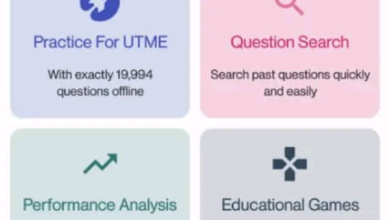Introduction to Quantum Computing

In a world fueled by rapidly advancing technology, the concept of quantum computing has been making waves in both scientific and technological circles.
Quantum computing has the potential to revolutionize the way we process information, solve complex problems, and drive innovation across various industries.
In this article, we’ll delve into the basics of quantum computing, exploring its principles, advantages, and real-world applications.
What is Quantum Computing?
At its core, quantum computing harnesses the principles of quantum mechanics to perform calculations and process information.
Unlike classical computers that use bits (0s and 1s) to store and manipulate data, quantum computers use quantum bits or qubits.
Qubits possess a unique property known as superposition, which allows them to exist in multiple states simultaneously.
This enables quantum computers to process a vast amount of information in parallel, potentially leading to exponentially faster computations for specific problems.
Key Concepts in Quantum Computing
1. Superposition
As mentioned earlier, qubits can exist in multiple states simultaneously, thanks to superposition. This property enables quantum computers to explore various solutions to a problem at once.
2. Entanglement
Qubits can become entangled, meaning the state of one qubit becomes dependent on the state of another, regardless of the physical distance between them. This phenomenon enhances the efficiency of quantum computation.
3. Quantum Gates
Just like classical computers use logic gates (AND, OR, NOT, etc.) to manipulate bits, quantum computers use quantum gates to manipulate qubits, enabling complex operations and computations.
Advantages of Quantum Computing
1. Speed
Quantum computers have the potential to solve certain complex problems significantly faster than classical computers. Tasks like factoring large numbers and optimizing complex systems could see exponential speedup.
2. Problem Solving
Quantum computing has the ability to tackle intricate problems in fields like cryptography, optimization, and material science, which are otherwise time-consuming for classical computers.
3. Innovation
Quantum computing can pave the way for innovative breakthroughs in various industries, including pharmaceuticals, finance, and artificial intelligence.
Real-World Applications
1. Cryptography
Quantum computing’s impact on cryptography is substantial. It could potentially break current encryption methods and motivate the development of quantum-resistant cryptography.
2. Drug Discovery
Quantum computers can simulate complex molecular interactions, accelerating the drug discovery process and leading to the identification of new compounds and treatments.
3. Supply Chain Optimization
Quantum computing can optimize complex supply chain logistics, leading to cost savings and increased efficiency.
4. Climate Modeling
Quantum computers can model and simulate intricate climate patterns, aiding in understanding and mitigating the effects of climate change.
FAQs
How does quantum computing differ from classical computing?
Quantum computing differs from classical computing by utilizing qubits and harnessing principles like superposition and entanglement to perform calculations exponentially faster for certain problems.
What are some challenges in building practical quantum computers?
Building practical quantum computers faces challenges such as qubit stability, error correction, and maintaining quantum coherence over extended periods.
Can quantum computers replace classical computers entirely?
While quantum computers excel at specific tasks, they aren’t designed to replace classical computers. Instead, they will likely work in tandem to solve problems efficiently.
Are there any programming languages for quantum computers?
Yes, there are programming languages like Qiskit and Cirq that allow developers to write code for quantum computers and run quantum algorithms.
Also Read: 15 Essential Cybersecurity Tips for Small Businesses





